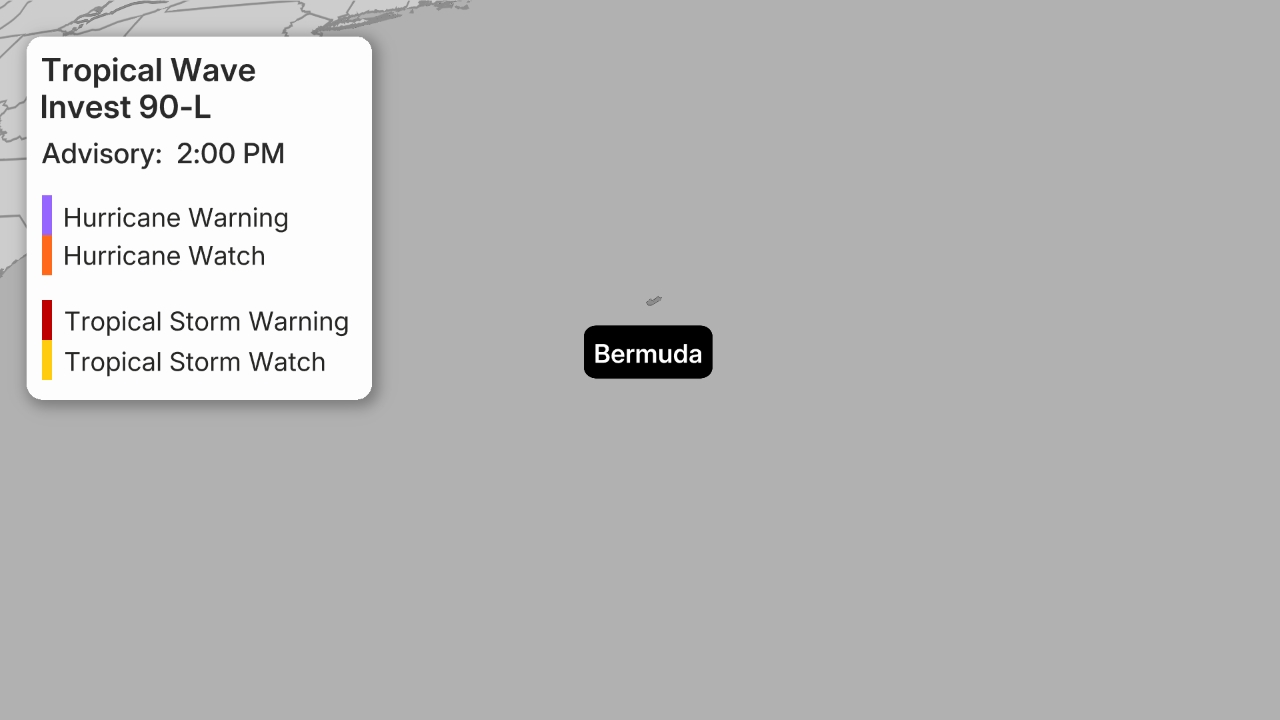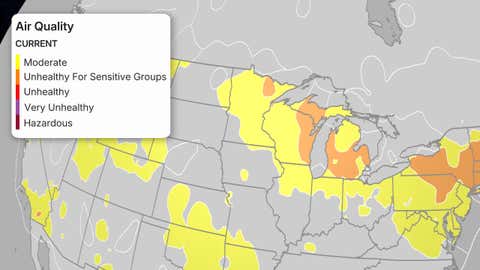

- Francine is approaching Louisiana as a hurricane in the Gulf of Mexico.
- The storm will make landfall in Louisiana on Wednesday, but its impacts will affect a wider area.
- Floods, rainfall, storm surges, destructive winds and tornadoes all pose threats.
- Francine is the first Atlantic storm since Ernesto about three weeks ago.
Hurricane Francine has strengthened in the Gulf of Mexico before making landfall in Louisiana later Wednesday. Dangerous storm surges, flooding, damaging winds and tornadoes will impact Louisiana and other parts of the Gulf Coast and the South.
Here is the latest status of this system: Francine is centered about 245 miles southwest of Morgan City, Louisiana, and is moving northeast. Maximum sustained winds were 90 mph at 4 a.m. CDT, making Francine a strong Category 1 hurricane.
Rainbands are moving in on parts of the northern Gulf Coast, but the core of Francine’s heaviest rain and strongest winds still lurks offshore. Expect conditions in Louisiana to worsen throughout the day.
(MAP TRACKER: Spaghetti models and more)


Where watches and warnings are in effect: A hurricane warning is in effect along the Louisiana coast from Cameron to Grand Isle. A storm surge warning is in effect for areas from Cameron, Louisiana, to the Mississippi-Alabama border. This means that hurricane-level winds (wind speeds over 75 mph) and life-threatening storm surges are expected in these areas on Wednesday.
Tropical storm warnings are in effect for much of the rest of the northern Gulf Coast from the southwest coast of Louisiana to the Alabama-Florida border. A tropical storm warning is also in effect for the New Orleans metropolitan area, meaning sustained winds of at least 39 to 73 mph are expected there later today and overnight.
A hurricane warning is also in effect for the greater New Orleans area, including Lakes Pontchartrain and Maurepas, meaning hurricane conditions are possible this afternoon and evening.
The map below shows where hurricane and tropical storm warnings and alerts are currently in effect.


Expected trajectory and intensity: Francine is forecast to make landfall in the hurricane warning area along Louisiana’s central coast late Wednesday afternoon or evening, with impacts expected to be felt long before then.
The National Hurricane Center predicts that Francine will reach Category 2 winds upon landfall.
After landfall, Francine will bring rain and strong wind gusts to eastern Louisiana and parts of Mississippi through Wednesday night. Rainfall from Francine and its remnants will affect other parts of the Southeast as far north as the Ohio and Tennessee valleys later this week.
(MORE: What the forecast cone means)


Possible effects
Flood Rain
The heaviest rainfall from Francine is expected in southeastern Louisiana, Mississippi, southern Alabama and the Florida Panhandle through Thursday night.
Rainfall in these areas could reach 4 to 8 inches, with as much as 12 inches in some areas. New Orleans and Baton Rouge, Louisiana; Biloxi and Jackson, Mississippi; and Mobile, Alabama are among the cities that have been issued flood warnings for this heavy rain threat.


Heavy rains from this system will spread across the Southeast and into the northern Ohio and Tennessee valleys through Friday and Saturday. At least localized flooding is possible in these areas.
(Improve your forecast with our detailed hourly breakdown for the next 8 days – only available on our Premium Pro experience.)


Storm surge
A life-threatening storm surge will inundate low-lying areas along the coast of Louisiana, Mississippi and Alabama.
According to the National Hurricane Center, flooding could reach 5 to 10 feet (1.5 to 3 meters) in parts of southern Louisiana, including Vermilion Bay, if the storm surge arrives at high tide. Flooding is also expected along the shores of Lakes Pontchartrain and Maurepas, where flooding could reach 3 to 6 feet (0.9 to 1.8 meters).
This high pressure is expected to arrive within hours before and after landfall late Wednesday, but some parts of the Gulf Coast as far east as Mobile Bay could experience flooding through Thursday morning.
If you are asked to evacuate, follow the instructions of local authorities.


Harmful winds
In areas of southern Louisiana under hurricane warnings, hurricane levels are expected by Wednesday afternoon.
These winds can knock down numerous trees and cause power outages. Even after the storm, power outages in this region could last for several days.
Tropical storm force winds are likely in other parts of eastern Louisiana, southern Mississippi, and southern Alabama, including New Orleans and Baton Rouge, Louisiana; Biloxi, Mississippi; and Mobile, Alabama. Power outages and some downed trees are expected in these areas.
Isolated power outages are possible as far north as central Mississippi, western Alabama and the western Florida Panhandle.


Possible tornadoes
Tropical cyclones making landfall often produce at least a few tornadoes near the coast and inland. An isolated tornado threat from this system could develop in southern Louisiana, southern Mississippi, southern Alabama, and the Florida Panhandle by Wednesday or Wednesday night.
The isolated tornado threat could continue Thursday in eastern Mississippi, Alabama and the Florida Panhandle.


What comes after the Gulf Coast? Francine will likely become stuck in the middle Mississippi Valley as part of a “Rex block.”
This is a form of atmospheric congestion that occurs when a high pressure area and a low pressure area (in this case Francine) come too close to each other.
Francine is expected to arrive over the Middle Mississippi Valley by Friday while a high pressure system is over the Great Lakes.
By then, Francine will be significantly weaker but will have no steering mechanism of its own. This means that the rainy weather that has been plaguing the Southeast for some time will return over the weekend.
Models are still trying to understand this situation, but suggest that what’s left of Francine will drift eastward this weekend as it loses steam in the southern Apalaches.
For the first time in a while
Francine was the first Atlantic storm since Ernesto moved into the North Atlantic on August 20.
According to WPLG-TV hurricane expert Michael Lowry, it has been 30 years since the Atlantic basin last experienced the first full week of September without active tropical cyclones.
And tropical scientist Phil Klotzbach of Colorado State University noted that the last time there were no storms in the Atlantic basin from August 13 to September 8 was 1968.

